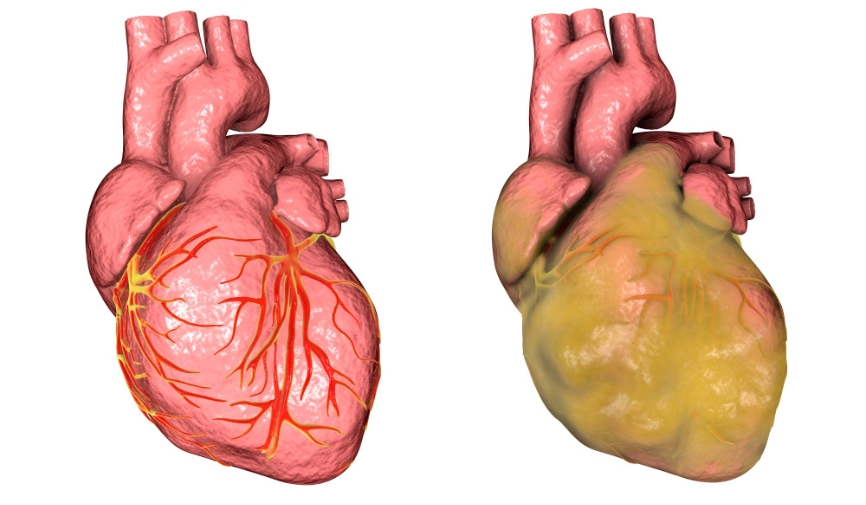Saturday the 4th of March is this year’s World Obesity Day and is observed to promote practical solutions to help end global obesity problems. With that in mind, we thought we’d explore the relationship between obesity and heart health and how a healthy weight can help retain good heart and mental well-being. With a health survey finding that over ¼ of adults in England are obese, and a further 37.9% are overweight, this issue couldn’t be more relevant.
What causes obesity?
We thought we’d start at the root cause: what factors contribute towards someone becoming obese? While the obvious answer might seem to be ‘eating too much,’ the BHF lists eight key factors that increase the likelihood of obesity:
- Portion sizes.
- Medical conditions and medications
- Genetic predisposition
- Stress and lack of sleep
- Junk food advertising
- Food labelling
- The fat and sugar content in everyday foods
- The calorie content of food and drink served in restaurants and cafes
How does obesity impact heart health?
Carrying excess weight can lead to fatty material building up in your arteries, restricting blood transmission to vital organs. If the arteries that carry blood to and from the heart become damaged or clogged, this can result in a heart attack.

People must be conscious of the impact of weight on their heart health and make any necessary changes as soon as possible. Often small changes to diet and lifestyle can have a significant positive effect on someone’s excess weight.
Tips for Maintaining a Heart Healthy Lifestyle
Now that we’ve covered what causes obesity and how it can negatively impact your heart health let’s break down some helpful ways to improve heart health, starting with diet.
Eat well
Calories matter for weight and some foods make it easier to keep our calories in check. Healthy eating is critical to good heart health and maintaining a weight that doesn’t strain your body excessively.
Say yes to:
- Whole grains
- Vegetables
- Whole fruits
- Nuts and seeds
- Beans and pulses
- Fish and poultry
- Plant oils
Say no to:
- Processed meats
- Chocolate and sweets
- Animal fats
- Processed snacks
You can see significant benefits by giving your body the food that it needs to run efficiently and healthily. Not only will this reduce cholesterol, but, providing you are mindful of portion size, it will also help to ensure a healthy and sustainable weight.
It’s essential to build a sustainable diet in order to ensure that you are able to not only achieve a healthy weight but also maintain it. Fad diets can increase the risk of eating disorders, which can severely impact your overall health. If you believe you may be suffering from an eating disorder, we advise you to seek help immediately.
Try to find tasty and exciting recipes that are also good for heart health, such as these recipes from BBC Good Food, endorsed by the BHF. This makes incorporating foods to help your heart health feel less like a chore.
Exercise Often
Physical activity triggers changes in your blood vessels, muscles, metabolism and brain, all of which can support your heart health. Unfortunately, exercise often seems like something inaccessible or hard to find time for, which is why we think it’s crucial to make it as inclusive and commonplace as possible.
You can opt for the traditional gym membership, where experienced staff will often be able to help you build a heart-healthy fitness routine. This is an excellent opportunity to carry out weight training in a safe environment, which can help reduce belly fat (a risk factor for heart disease).
The NHS recommends at least 150 minutes of moderate-intensity activity per week, which averages out to just over 20 minutes per day. Now, we know the gym isn’t for everyone, which is why we advocate incorporating exercise into your everyday routine. For example, consider walking to the shops to pick up a pint of milk or cycling to work instead of driving. You’ll be surprised at how quickly the exercise time adds up by making these minor alterations.
This is a great way to lose weight, too, as any time spent exercising burns calories. Balancing a healthy diet and exercise regime may seem like hard work but, not only is it vital to retaining a heart-healthy lifestyle, we also challenge the idea that it can’t be fun and accessible for everyone.
Are you passionate about heart health?
At WEL Medical, we retail some of the most usable and innovative lifesaving products around. So whether it’s a defibrillator for your local community or information on how to get trained in CPR, we can support you in taking the heart-healthy path.
Read the blogs below for more ways to improve heart health, or contact us to see how we can help you and your loved ones stay safe and healthy.







